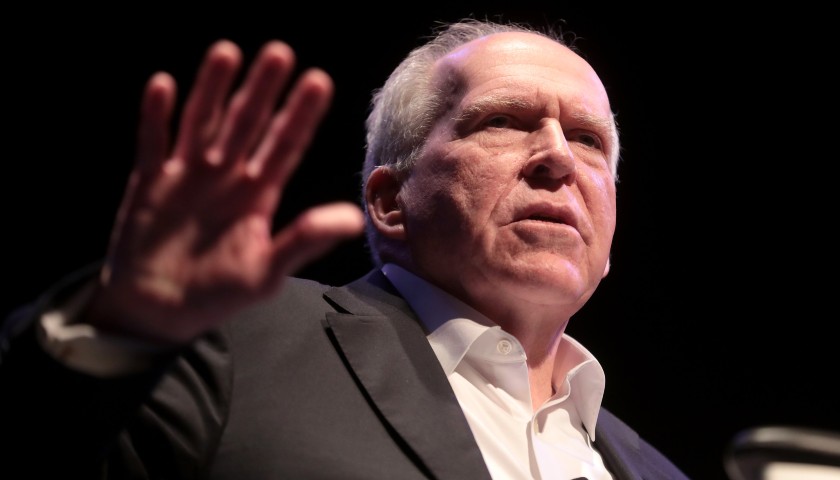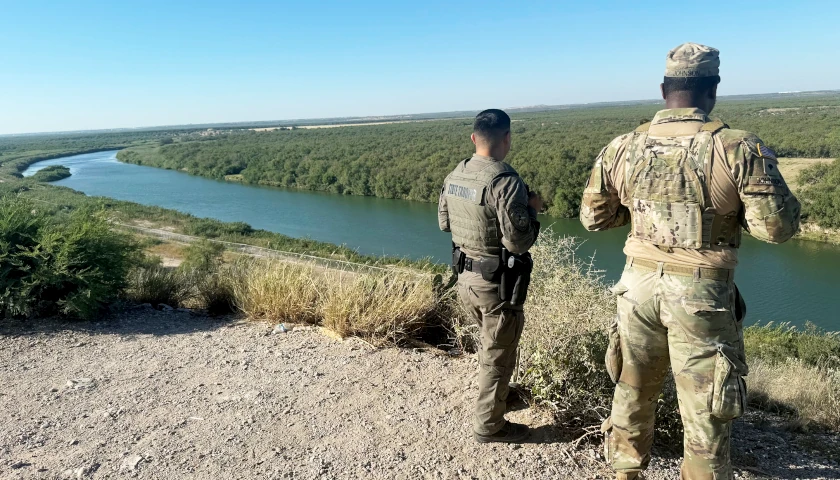by Jack Cashill
The very last op-ed progressive journalist Michael Hastings wrote for BuzzFeed was titled, “Why Democrats Love To Spy On Americans.” Ten days later, on June 17, 2013, Hastings emailed his BuzzFeed associates warning them, “The Feds are interviewing my ‘close friends and associates.’ ” He added that he was “onto a big story” and had to go “off the rada[r] for a bit … hope to see you all soon.”
Hastings did not get to see those associates soon or otherwise. In the early morning hours of June 18, his leased Mercedes crashed into a palm tree at high speeds in a residential Los Angeles neighborhood. The car burst into flames upon impact, and Hastings’s body was burned beyond recognition.
Two months later, Hastings’s widow, Elise Jordan, gave her first national interview. “My gut is that it was really a tragic accident,” Jordan said of the crash, before adding a more bankable quote: “There will be published his profile of John Brennan in an upcoming edition of Rolling Stone, probably in a couple weeks.”
Jordan did not know enough about President Obama’s newly appointed CIA director to be concerned. For the four previous years, Brennan had served quietly as Obama’s deputy national security advisor and generally kept his name out of the news. Jordan’s comments about Brennan made no waves.
They should have. Although not yet made public, Michael Hastings was well aware of a 2010 email hacked from the chief security officer of Stratfor, a global intelligence company and CIA contractor.
The email, which was fed to WikiLeaks, reads as follows: “Brennan is behind the witch hunts of investigative journalists learning information from inside the beltway sources. Note — There is specific tasker from the WH to go after anyone printing materials negative to the Obama agenda (oh my.) Even the FBI is shocked. The Wonder Boys must be in meltdown mode…”
Those who knew Brennan had to believe the email was accurate. From the beginning, he served as Obama’s fixer. In recent weeks, declassified documents have confirmed Brennan’s central role in the plot to subvert first Trump’s candidacy and then his presidency, but even before Obama was elected president, Brennan had shown his potential for high-level mischief.
Beginning in January 2008, for instance, a still unnamed individual breached Obama’s passport file four times. To its credit, CNN reported a detail the New York Times did not find newsworthy, namely that the suspect worked for the Analysis Corporation, whose CEO “advises the Illinois Democrat on foreign policy and intelligence issues.” That CEO was John Brennan. With a president to elect, the media let the Brennan angle die.
Michael Hastings was a media outlier. Although he moved in progressive circles, his one true cause was a free press. Hastings represented a shrinking pool of journalists from within that circle willing to pursue the truth even if it thwarted the Democratic agenda.
A month before his death, Hastings appeared on the left-wing Current TV program, The Young Turks. “The Obama administration has clearly declared war on the press. It’s declared war on investigative journalists, our sources,” said Hastings. “I think the only recourse to this kind of behavior by the government is to say back to the government, ‘We declare war on you.’”
Hastings was responding to the news that Obama’s Justice Department had quietly seized all of the relevant records for twenty Associated Press telephone lines. The seizure had to do with AP reporting on a covert CIA operation in Yemen. Although only five reporters were involved in that story, more than one hundred reporters used the lines and switchboards whose records were seized.
AP President Gary Pruitt publicly scolded Attorney General Eric Holder, arguing that the government had “no conceivable right to know” the content of those records. On Face the Nation, Pruitt boldly assessed White House strategy, “I know what the message being sent is: If you talk to the press, we’re going after you.”
In his June 7 op-ed, Hastings referenced another looming scandal, “Glenn Greenwald’s exposure of the NSA’s massive domestic spy program.” Hastings cited several other journalists, including James Rosen of Fox News, who had been “viciously attacked by the Obama administration and its allies in the FBI and DOJ.” He may not have known about the cyber-harassment of CBS News’s Sharyl Attkisson. In her book, Stonewalled, Attkisson refers to the Stratfor email about Brennan in the way of suggesting her possible tormentor.
As to whether Brennan had Hastings killed, one essential variable overrides all the many circumstantial ones: the testimony of Michael’s older brother, Jonathan. In an extended interview, Jonathan related how he had flown out to Los Angeles to help ease his brother through a manic episode, not Michael’s first. “I started to make arrangements with our other brother to fly out and help me possibly force Mike into checking himself into a hospital or detox center,” said Jonathan.
Jonathan never got the chance. “He snuck out on me when I was sleeping. He crashed his car before anyone could do anything to help him.” It is highly unlikely Brennan or his allies had sabotaged the car. What seems probable, however, is that the Deep State response to Hastings’s investigation aggravated his paranoia.
Unlike the brother and parents of Seth Rich, the DNC data analyst murdered in 2016, Jonathan and his family did not turn on those who speculated about Michael’s death. Instead, Jonathan suggested a more constructive course of action. “By casting Mike’s death as a kind of Robert Ludlum-style conspiracy,” said Jonathan, “people miss out on how the government actually silences and suppresses reporters: through the threat of legal action.”
Four years after the death of Hastings, possibly at the instigation of larger forces, the Rich family would take legal action to prevent Fox News and others from investigating the death of their son Seth. Michael Hastings would have been appalled.
Two years almost to the day after Hastings’s death, Donald Trump announced for the presidency. Soon thereafter John Brennan launched his secret war to undermine Trump. It must have surprised even Brennan that the media, including the hosts of The Young Turks, cheered him on. More perversely still, after he lost his gig at the CIA, NBC, and MSNBC hired Brennan as a senior national security and intelligence analyst.
Among the few progressive journalists to see through the madness was renegade Rolling Stone reporter Matt Taibbi. In his book, Hate Inc., Taibbi says out loud what should have been obvious to everyone on his side of the barricades: “Being on any team is a bad look for the press, but the press being on team FBI/CIA is an atrocity, Trump or no Trump.” As the Biden laptop scandal has shown, the media and the FBI still play on the same team.
The profile of John Brennan, the one Elise Jordan believed was to be published “in a couple weeks,” never did see the light of day. Serious progressive journalism appears to have died when Hastings did. He had warned that “the Obama administration’s version of the national security state will begin to eat itself,” but he could not have suspected that his progressive colleagues would happily enable the feast.
Hastings never did tell his readers why Democrats love to spy on Americans, but he surely sensed what the answer was: unlike Republicans, Democrats know they can get away with it. So why not?
– – –
An independent writer and producer, Jack Cashill has written a dozen books under his own name and collaborated on a dozen more. He has a Ph.D. from Purdue University in American studies. Jack Cashill’s new book, Unmasking Obama: The Fight to Tell the True Story of a Failed Presidency, is now widely available. See www.cashill.com for more information.
Photo “John Brennan” by Gage Skidmore CC BY-SA 2.0.




